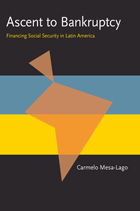
In words that eerily echo current U.S. debates, Mesa-Lago analyzes virtually all social insurance programs: old age, disability and survivors' pensions; health care; occupational hazards; family allowances; and unemployment. For social security specialists, this impressive study will serve as a comprehensive regional handbook on the legal, administrative, and financial features of Latin America's programs. Students of comparative policy and applied economics will find Mesa-Lago's methodology, analytical framework, and policy recommendations invaluable.



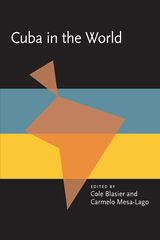






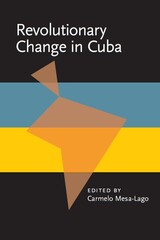
Cuba has been transformed more radically within one decade than almost any society in recent history. Yet the Cuban Revolution is poorly understood abroad because of its physical and political isolation, the controversies between adherents of the old and new regimes, and the murky skirmishes of the cold war.
This collection of essays is a comprehensive and authoritative study of almost all major aspects of socialist Cuba. It draws together the talents of the ablest group of Cuban specialists ever represented in a single volume.
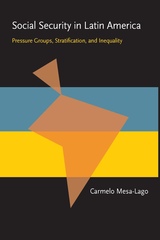
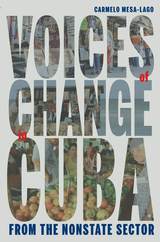
Based on eighty in-depth interviews recently conducted in Cuba, this book captures actual voices from this evolving economic sector. It details workers’ level of satisfaction with what they do and earn, profits (and how they are allocated between consumption and investment), plans to expand their activities, receiving foreign remittances and microcredit, competition, forms of advertising, and payment of taxes. Perhaps most revealing are the speakers’ views on the obstacles they face and their desires for change and improvement. As such, the book offers fascinating insights into today’s Cuban economy from the nonstate sector, while also reflecting on its potential for development and the obstacles it faces.

Written by a top scholar on social security in Latin America and the Caribbean, this book assesses the effects of the world economic crisis on social security and welfare in the region. Drawing on the impact of and lessons from previous crises, Carmelo Mesa-Lago identifies the strengths and weakness of Latin American social security before the current global crisis. He evaluates the event's actual and potential effects on pensions, health care, and social assistance programs, based on a taxonomy of three groups of countries.
The book ends with a summary of policies adopted by some countries and the author's own recommendations on social policies to lessen the adverse outcomes of the financial crisis. Latin America's pioneering social-welfare reforms make this book important for other regions of the world, both developed and developing.
READERS
Browse our collection.
PUBLISHERS
See BiblioVault's publisher services.
STUDENT SERVICES
Files for college accessibility offices.
UChicago Accessibility Resources
home | accessibility | search | about | contact us
BiblioVault ® 2001 - 2024
The University of Chicago Press









